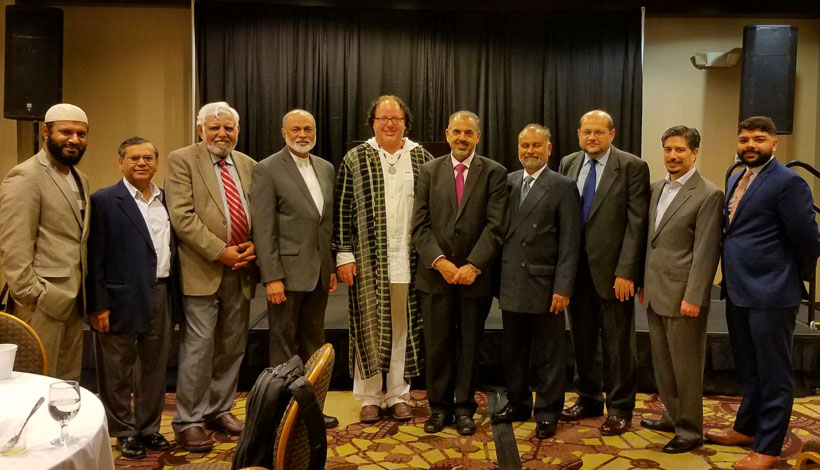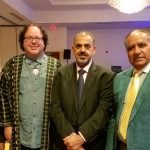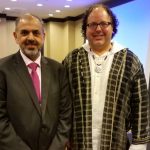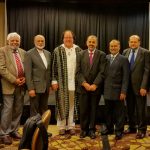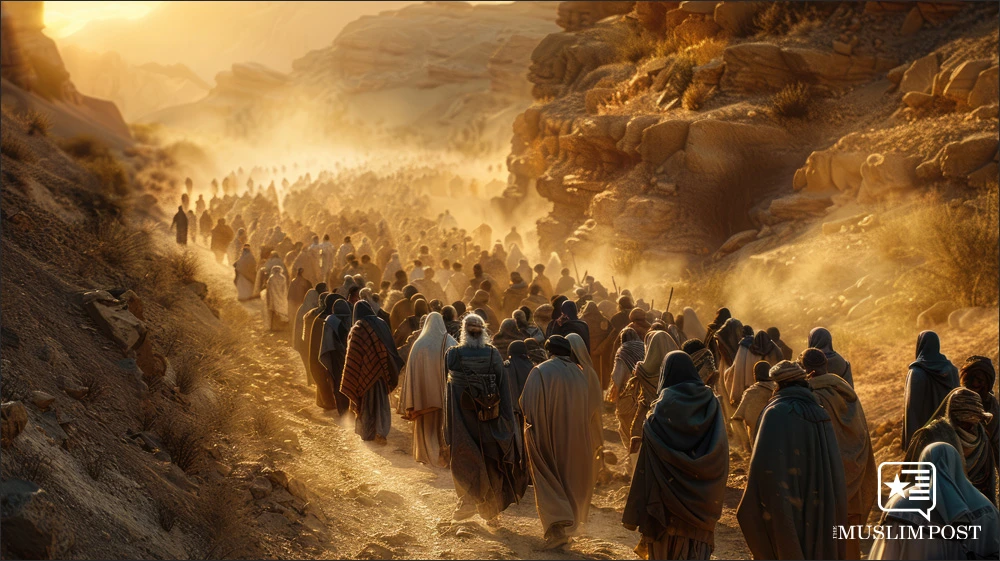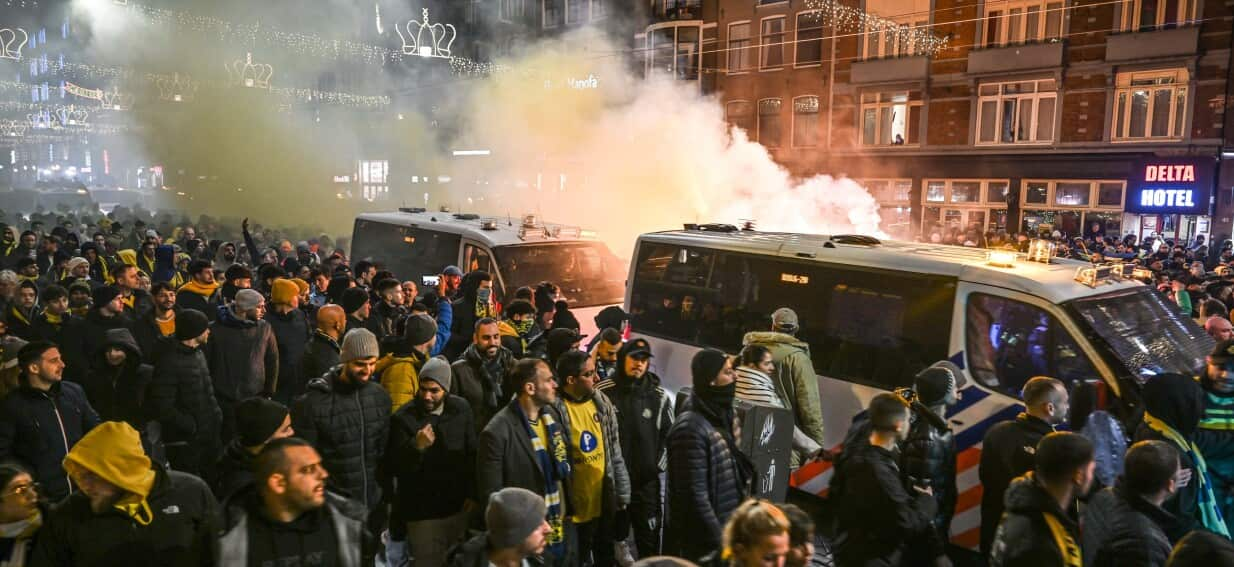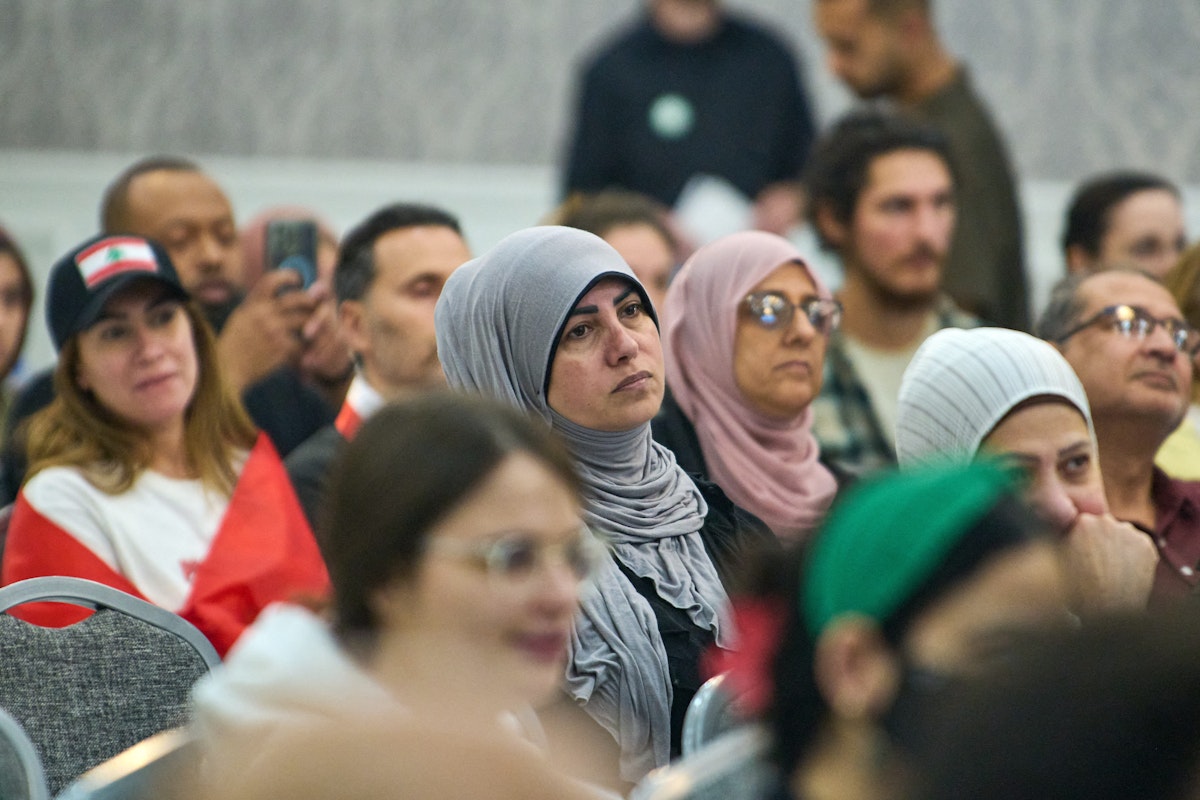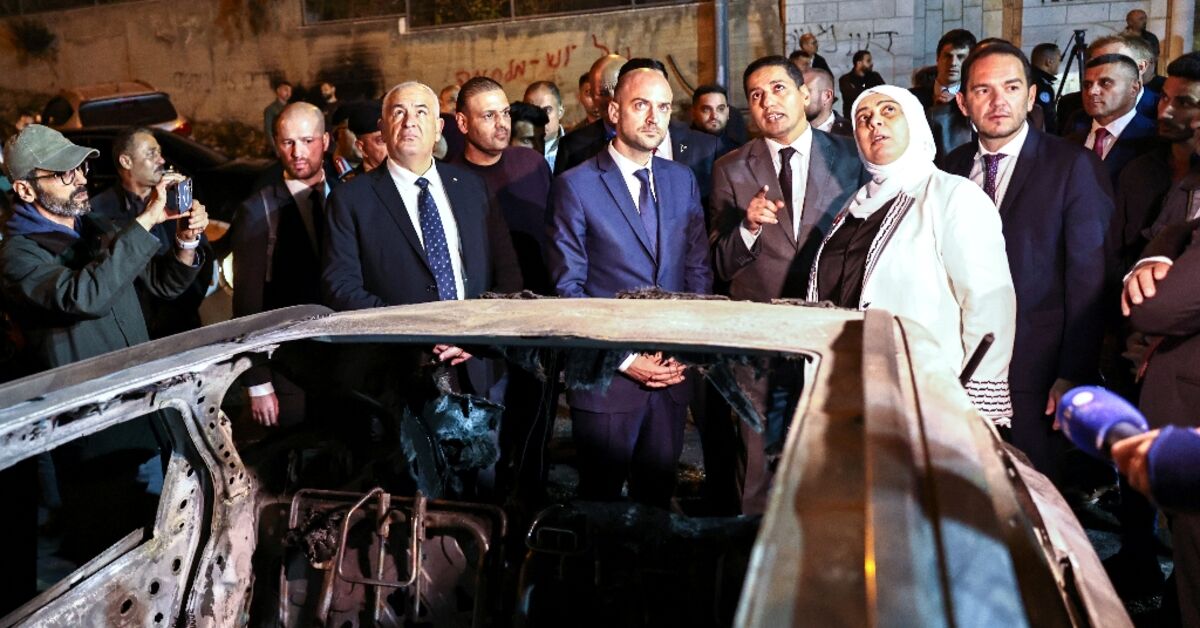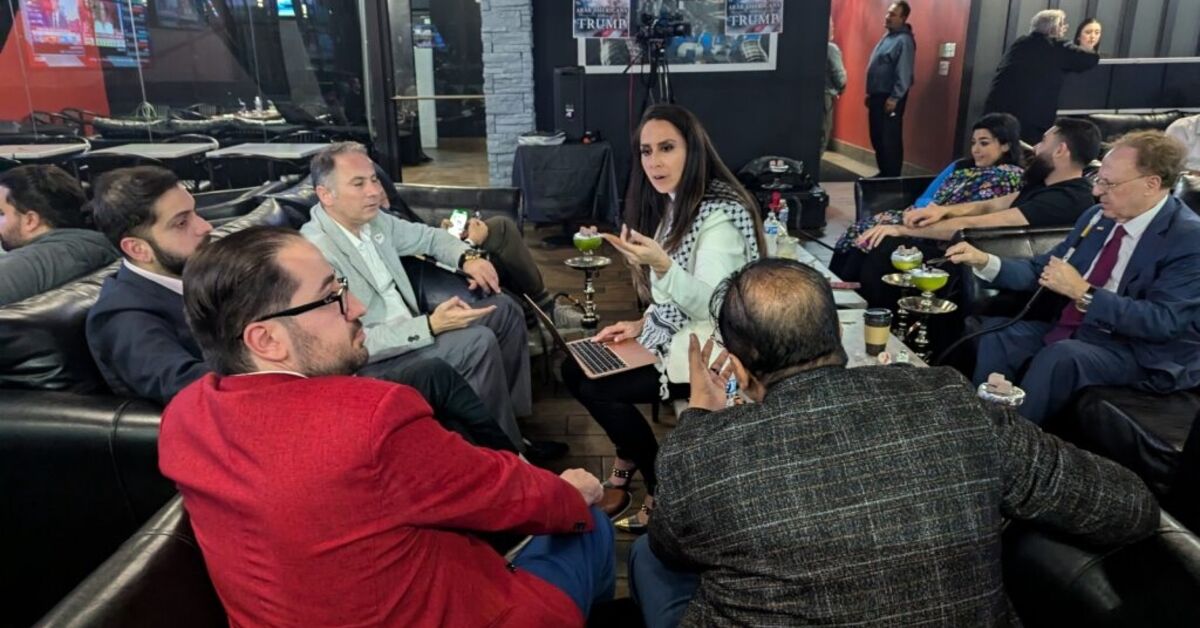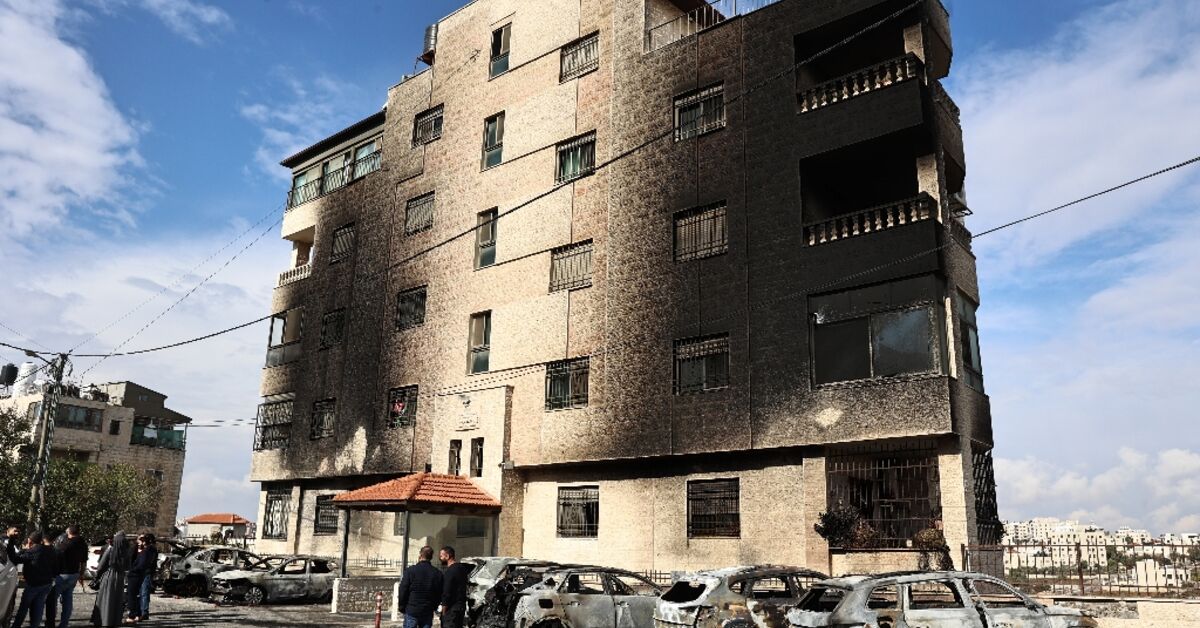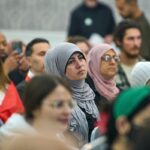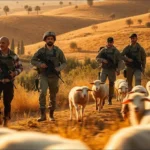By Dr. John Andrew Morrow (Shaykh Ilyas Islam)
(Presented at the Sound Vision Benefit in Houston, Texas, on December 2, 2017, and at the Annual Seerah Conference in Chicago, Illinois, on December 3, 2017)
I take refuge in Allah from Satan the Rejected. In the Name of Allah, the Most Compassionate, the Most Merciful. Praise be to Allah, the Loving and the Just, and peace be upon the best of the prophets and messengers, Muhammad ibn ‘Abd Allah, along with his family and faithful companions.
I am delighted to participate in Sound Vision’s Annual Seerah Conference. I would like to thank everyone involved in making this event a reality, including, but not limited to, Imam Abdul Malik Mujahid and Imam Musa Azam. I would also like to thank all the speakers for sharing their time and knowledge with the community, including, but not limited to, the Right Honorable Lord Nazir Ahmed. And I would like to thank you all, the audience, that is, for taking time out of your busy schedules, to expand your intellects and cultivate your spirituality. Now then…
I have been invited to address a topic of timely concern and universal importance: “Coalition Building as a Major Strategy of Prophetic Success.” All I can say is masha’ Allah, in the good sense, not in the “O my God!” sense. It is evident that a great deal of strategic thought was placed in the selection of themes to be explored at this conference. Although I deliver many highly-academic, graduate-level, lectures, today, I will opt for clarity and simplicity. The scholarly approach and the popular approach are both valid. They each have a time and place.
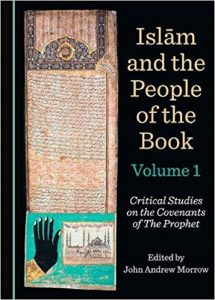 Muslims need to know Muhammad, peace and blessings be upon him. Non-Muslims need to know Muhammad, peace and blessings be upon him. Unfortunately, some of the biographies of our beloved Prophet, Allah bless him and grant him peace, do us a relative disservice. They provide us with a chronology of events and place an overemphasis on wars and battles. They read, very much, like the life of a CEO, a chief-executive officer, or a military commander. Some are filled with boring, tedious, and mind-numbing detail. Others are full of action, no doubt, however, they speak very little about the Prophet as a person, the Prophet as a husband, the Prophet as a father, the Prophet as a friend, the Prophet as a spiritual and ethical being, the Prophet as a community leader, and the Prophet as a coalition builder.
Muslims need to know Muhammad, peace and blessings be upon him. Non-Muslims need to know Muhammad, peace and blessings be upon him. Unfortunately, some of the biographies of our beloved Prophet, Allah bless him and grant him peace, do us a relative disservice. They provide us with a chronology of events and place an overemphasis on wars and battles. They read, very much, like the life of a CEO, a chief-executive officer, or a military commander. Some are filled with boring, tedious, and mind-numbing detail. Others are full of action, no doubt, however, they speak very little about the Prophet as a person, the Prophet as a husband, the Prophet as a father, the Prophet as a friend, the Prophet as a spiritual and ethical being, the Prophet as a community leader, and the Prophet as a coalition builder.
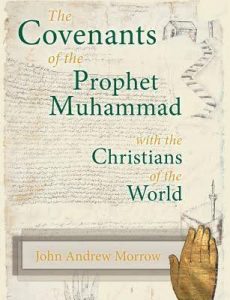 The Messenger of Allah, may Allah shower him with blessings and grant him peace, was a complete and total human being. He had many dimensions. He was a warrior, no doubt. He was a legislator, a judge, and a jurist. He was a political leader. He was a religious leader. He was a philosopher. He was an orator. He was an economist. He was an abolitionist. He was a suffragist. He was a civil rights activist. He was a human rights activist. He was a racial, economic, and social justice activist. He was a democrat, an advocate of democracy (not a member of the Democratic Party, thank you very much). He was a proponent of pluralism who created a Confederation of Believers based on the Constitution of Madinah and the Covenants of the Prophet.
The Messenger of Allah, may Allah shower him with blessings and grant him peace, was a complete and total human being. He had many dimensions. He was a warrior, no doubt. He was a legislator, a judge, and a jurist. He was a political leader. He was a religious leader. He was a philosopher. He was an orator. He was an economist. He was an abolitionist. He was a suffragist. He was a civil rights activist. He was a human rights activist. He was a racial, economic, and social justice activist. He was a democrat, an advocate of democracy (not a member of the Democratic Party, thank you very much). He was a proponent of pluralism who created a Confederation of Believers based on the Constitution of Madinah and the Covenants of the Prophet.
With all of this information in mind, it is no wonder that Michael H. Hart ranked Muhammad as the most influential figure in human history. As he explained, “he was the only man in history who was supremely successful on both the religious and secular levels.”
How is it, then, that a poor, uneducated, orphan, from some back-water in Arabia became one of the most powerful leaders in the world with billions of believers? “Violence, bloodshed, terrorism, and mass-murder” respond the intentionally ignorant Islamophobes and hard-hearted hate-mongers. Baraka bi al-kudhub. Kafa min al-kidhb. Enough with the lies already. He did not receive revelation, proclaim his prophethood, and impose his authority by force. If Muhammad, the son of ‘Abd Allah, was successful, it was because he was a master communicator and coalition builder.
While it may come as a surprise to some, Muhammad’s bridge-building predates the appearance of the Angel Gabriel on the Mountain of Light. Although it has become a dogma that Muhammad only left Arabia on two occasions, once when he was a boy, in the company of his uncle Abu Talib, and yet again, when he was a young man in the service of Khadijah, such a belief is not evidence-based. Early Muslim and Christian sources clearly confirm that Muhammad was well-traveled, that he participated in caravans throughout Arabia, Yemen, the Sinai, Egypt, Palestine, Syria, Iraq, Persia, Armenia, Abyssinia, and parts of the Roman and Byzantine Empires, including, perhaps, North Africa and the Iberian Peninsula. I am not making such claims. I am simply sharing what early sources state.
The monks from monasteries throughout the Greater Middle East claim to have been in personal contact with Muhammad when he was a child and a young man. Many of these monks, from Egypt, the Sinai, Syria, and beyond, recognized Muhammad as the Prophet that was foretold in the prophecies they had in their possessions. The monks from St. Catherine’s Monastery in the Sinai asked Muhammad to protect them when he would proclaim his prophethood. He is said to have provided them with a print of his palm as a promise. By the will of God, and according to His Master Plan, Muhammad appears to have been laying the groundwork for his future mission.
At home, in Arabia, Muhammad also earned the respect, trust, and reverence of the Arab people. When the Ka‘bah needed to be rebuilt, and the question of who should return the Black Stone to its place arose, the Arabs turned to Muhammad al-Amin, the Trustworthy, to resolve the dilemma. He placed the stone on a sheet and had the leaders of each tribe hold on to it, lift it, and return it to its place.
Due to unethical business dealings, conflict arose between the Arabs. Who did they call upon to resolve the conflict? To Muhammad. He spear-headed an alliance to establish fair commercial dealings. It was known as Hilf al-Fudul, the League of the Virtuous, in which tribal leaders agreed to respect the principles of justice and collectively intervene in conflicts to establish justice.
Although this event took place before Muhammad received revelation, and even though the parties were non-Muslims, it is considered an important precedent in Islamic law and ethics. Years later, when Muhammad ibn ‘Abd Allah became Muhammad Rasul Allah, he insisted that the pact remained valid and binding.
After Muhammad, Allah shower him with countless blessings, received the revelation on the Mountain of Light, he commenced the Islamic tradition of coalition-building. Who did he appeal to? The rich? The powerful? No. He reached out to his family first and foremost. He then appealed to his friends. He focused on building a small, spiritually-strong, community.
When he had the support of those who were close to him, Allah asked him to andhira ‘ashiraka al-aqrabin or “warn your closest kindred.” (26:214). Consequently, he sought permission from the tribal chiefs to preach on Mount al-Safa. They agreed to listen to him because they had never heard him tell lies.
Unfortunately, the Arabs of Quraysh responded with hostility to the peaceful, non-violent, message of the Prophet which focused on faith and justice. Eventually, the persecution took such a toll that the Prophet proposed to send his supporters to Abyssinia, the land of a just Christian king where no one was wronged.
If one peruses the correspondence between Muhammad, the Messenger of Allah, peace and blessings be upon him, and al-Najashi, one is struck by their familiar, as opposed to formal, tone. The Prophet spoke to the Abyssinian leader, who appears to have been Judeo-Christian in faith and practice, as if they were friends.
For all intents and purposes, it appears that both men knew and respected one another. If so, this is, once again, evidence that Muhammad had long engaged in alliance-building. Thanks to these efforts, many Companions of the Prophet found refuge in Abyssinia in the year 615 CE.
In the year 619 CE, early Muslim and Christian sources state that the Prophet Muhammad, Allah bless him and grant him peace, received a delegation of Christians in Makkah. This was several years after the first hijrah to Abyssinia and several years before the second hijrah to Madinah. The delegation appears to have consisted of Armenian Christians from Jerusalem. They had long been expecting the rise of an Arabian prophet. They knew that his faith would conquer the world. They knew that he would free them from the oppression of Byzantium. Hence, they asked him to protect their Christian faith and to grant them possession of the holy sites in Jerusalem. This document survives to this day and was ratified by ‘Umar, ‘Ali, and Salah al-Din, among many others.
As a result of extensive epistolary outreach and the diplomatic efforts of his envoys, the Messenger of Allah was able to conclude the Pledge of ‘Aqabah and was able to migrate to Madinah, along with most of his persecuted followers. And who guided the Prophet to Madinah? Who did he select to bring him to safety? Was it a Muslim? No. Was it a Christian? No. Was it a Jew? No. It was an Arab polytheist whom the Prophet trusted with his life. Why did the guide risk the wrath of his own polytheistic people? Because he knew the Prophet as a person. Humanity trumps religion.
The Prophet Muhammad did not impose himself on the people of Madinah: he was invited by the people of Madinah. He was a popularly-acclaimed leader who was asked to act as a mediator between the Jews and polytheists of the prosperous city-oasis. Muslims, at the time, numbered in the hundreds. Non-Muslims numbers in the tens of thousands. The people of Madinah were not converted by force, turned into dhimmis or slaughtered. They gradually entered Islam in the years and decades to come. Some, however, remained Jewish: loyal Jewish allies of the Muslims. So, don’t generalize.
How, then, did the Prophet consolidate power in Madinah? It was certainly not by force for as Almighty Allah confirms in the Qur’an: “There shall be no compulsion in religion” (2:256). It was by means of shura’ or consultation: wa shawirhum or “Consult with them in the matter” (3:159). As Almighty Allah confirms in the Qur’an, the correct method of community-building consists of consultation. The believers are those “whose affair is [determined by] consultation among themselves” (42:38) or amruhum shura.
In accordance with the Qur’an, the Prophet, peace and blessings be upon him, consulted with the community in Madinah. He met with tribal and faith leaders. He deliberated with them. Then, under his leadership, but in collaboration with non-Muslims, he created and promulgated the Covenant of Madinah, the first constitution in the history of humanity which provided equality for all, regardless of religion, tribe, race, gender or social class. “They are one community [or ummah],” proclaims the Covenant of Madinah: “conditions must be fair and equitable to all.” Jews, Muslims, and polytheists all had to contribute equally to the defense of the Ummah.
The religious rights of the People of the Book were protected: “The Jews have their religion and the Muslims have theirs.” “To the Jew who follows us belong help and equality,” it proclaims, “he shall not be wronged, nor his enemies aided.” Muslims were even obliged to protect and defend the allies of the Jews: “The close friends of the Jews are as themselves.”
The enemies of the Ummah, namely, the pagans from Quraysh, who persecuted the Muslims and non-Muslims who followed the Prophet, were to be given no protection. All members of the Ummah were bond “to make peace and maintain it.” However, in the event they were attacked by their common enemies, they were all required to rally in defense of it.
The Covenant of Madinah established the rule of law among a lawless people: “Whenever you differ about a matter it must be referred to Allah and to Muhammad.” The teachings of the Torah, the Gospel, and the Qur’an, became the law of the land, governing their respective communities. The Prophet was to oversee their implementation impartially. He was the final arbiter.
Word of the Prophet Muhammad’s rise continued to spread to the four corners of the world. In the second year of the hijrah, a delegation of monks from St. Catherine’s Monastery visited him in Madinah where they reminded him of his promise of protection. There, in his mosque in Madinah, the Prophet, peace and blessings be upon him, dictated to ‘Ali, may Allah be pleased with him, the ‘ahd al-nabi, the ‘ahd nabawi, the ashtinameh, the Covenant of the Prophet Muhammad with the Monks of Mount Sinai, which guaranteed freedom of religion, protected religious establishments, granted tax-free status to priests, monks, and nuns, and prohibited forced conversions.
The Messenger of Allah, Allah bless him and grant him peace, provided the same protections to the People of the Book throughout the Greater Middle East. He protected the Christians of Najran, Aylah, Egypt, Syria, Persia, Armenia, and the world. He protected the Samaritans in Palestine. He protected the Jews from the Yemen and Maqnah. He also protected the Zoroastrians. None of this is new. None of this is comes from me or some revisionist reading of Islam.
All of this is authentic and confirmed in early Jewish, Samaritan, Christian, and Muslim sources, both Sunni, and Shii. Don’t take it from me. Read it for yourself. Read the Constitution of Madinah.
If you are proficient in Arabic, read Majmu‘ah al-Watha’iq al-siyasiyyah li al-‘ahd al-nabawi wa al khilafah al-rashidah by Dr. Muhammad Hamidullah, the famous Sunni scholar and Western academic. It is nearly 1,000 pages long. It contains hundreds upon hundreds of letters, treaties, and covenants of the Prophet. It clearly shows the massive diplomatic endeavors of the Messenger of Allah, peace and blessings be upon them.
Read Makatib al-Rasul, a commentary of Hamidullah’s compilation, by Ayatullah Ahmadi Minyanji, the respected Twelver Shiite scholar. It consists of four volumes. So, it’s about 4,000 pages long. You can also read the Arabic translation of my work: Uhud al-Nabi li Masihiyyi al-‘alam which is published by Dar al-Kutub al-‘Ilmiyyah.
If you are only familiar with English, read Power Manifestations of the Sirah by Zafar Bangash, a Sunni intellectual from Canada. It provides an excellent analysis of the Prophet’s coalition-building efforts.
If you wish to understand how the Prophet engaged with Christians, I recommend my work, The Covenants of the Prophet Muhammad with the Christians of the World.
If you wish to broaden your understanding of how the Messenger of Allah built bridges with the People of the Book, Jews, Samaritans, Christians, and Zoroastrians, read Islam and the People of the Book: Critical Studies on the Covenants of the Prophet, a three-volume encyclopedia which features three dozen studies on the subject by leading Muslim scholars along with translations of the Covenants of the Prophet in English, French, Spanish, Portuguese, Italian, Dutch, Russian, Tamil, Indonesian, Urdu, Persian, Azeri, Turkish, and Arabic.
Allah is Just. The Prophet was just. And we Muslims must strive to be just. Coalition-building is the key to success. I send you greetings of peace and prayers for success and prosperity in this life in the next. Al-salaamu ‘alaykum wa rahmatullahi wa barakatuhu.

